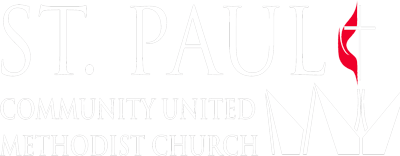How is it with your soul? John Wesley opened each of his small groups or bands with this question. It’s a deep and probing question. It’s the kind of question that makes one feel vulnerable.
How is it with your soul also is at the heart of this forty-day season we call Lent. Lent historically is a time of self-reflection and introspection. Lent is designed to strip us down, remove the distractions of life, and help us center our attention on the things that really matter, such as the condition of our souls. Or, as Jesus put it, the position of our hearts.
And, when I talk about heart, I am referring to something more than what we associate with Valentine’s Day as romantic love. For Jews, the heart or soul is a comprehensive metaphor for the human self. We use the phrase “the heart and soul of the matter” to describe those things that are central. The heart is that core part of us that affects the ways we perceive, think, feel, and desire. The heart is what we identify as both the core of our identity and our will that drives our lives.
In the passage above, Jesus claims that finding the location of the heart is as simple as identifying the things we treasure. Of course, when we think about treasures, our minds wander toward things like our homes, cars, clothes, and all the stuff with which we surround ourselves. However, when Jesus talked about treasures, he offered a wider category that included other things we value, such as success, security, happiness, and even the preservation of life itself. Our culture today has centered its focus on things like physical appearance, promotions at work, our reputations, and most especially our notoriety (in other words, how many followers you have on social media).
So, in light of all these treasures, Jesus asks us to consider which one or more of them are getting in the way of our relationship with God. Pink Floyd, a popular band from my youth, published a song entitled, The Wall. The song describes a young man who had built an emotional wall around him so that no one could enter. In a sense, the things we treasure have a similar capacity to erect a barrier separating our hearts from God’s.
Just as importantly, if the human soul is the center of our identity, then these treasures become the bricks in the wall that limit us from becoming the people God created us to be. These treasures prevent us from living into the best version of ourselves. And, rather than becoming the true, authentic self God made us to be, we become at best a second-hand facsimile.
On Ash Wednesday, we began a forty-day project of tearing down the walls that we have allowed to imprison us and grind these impediments into dust. In fact, the dust or ashes that we use to mark our foreheads symbolize our willingness to be broken so that our relationship with God can be renewed and our true identity can be revealed. At the same time, we recognize that we can do none of this “spiritual restoration” on our own, which is the very reason we are marked with the sign of the cross. The cross is our greatest reminder that God is doing for us the very things we cannot do for ourselves.
But, to begin, each of us must follow Jesus’ counsel and identify the things in this life we treasure most. I suggest that you start by asking these questions:
What do I think about the most?
What causes me the greatest pain?
Where do I spend most of my time and money?
What frightens me most if I had to let it go?
This four-pronged inquiry will help you identify the bricks that obstruct your relationship with God. And when you are able to name the problem, you can appeal to God to tame the problem.
For with God, all things are possible!
